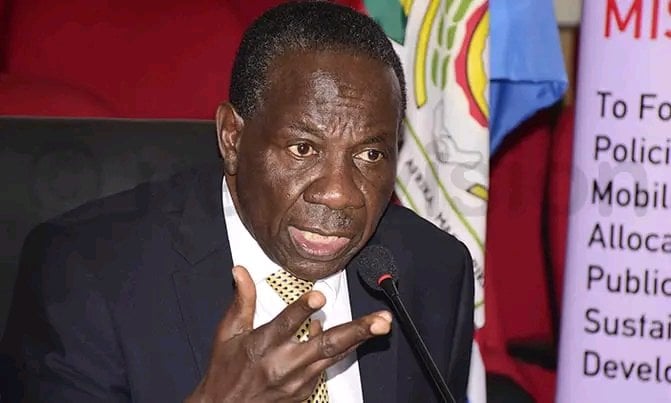Govt needs policies that revive economic growth

Finance minister Matia Kasaija
What you need to know:
The issue:
Economy
Our view:
From a tax policy perspective, we believe the country needs policies that promote investment and economic activity.
Finance minister Matia Kasaija’s recent comment that there is no way out of Uganda’s debt problem without the taxpayer picking up the tab is a sign of the times.
Mr Kasaija told this newspaper that increased tax revenue can help address the sovereign debt burden. While presenting the Shs48 trillion budget for the 2022/2023 financial year, Mr Kasaija last month revealed that external debt is just shy of Shs50 trillion.
He also put Uganda’s fiscal deficit at just under Shs7 trillion, with debt financing at nearly Shs805b.
There is intellectual consensus that such a fiscal outlook is vexing. If it was not apparent that policymakers are facing a difficult task of addressing rising debt, Mr Kasaija’s comment firmly establishes the need to set out a credible medium-term fiscal path. The question is: what will this look like?
Uganda’s debt to GDP ratio currently stands at 54 per cent. The manner Mr Kasaija proffers to attack debt either by way of servicing or reducing it sounds straightforward enough, if a little innocuous. The Finance minister told us thus: “Give me more taxes so that I don’t have to borrow. Give me taxes…stop complaining when I increase taxes.”
He added: “If you are demanding salary increases, you want roads to be tarmacked, you want this and that. Then, I have...to borrow either internally or externally.”
We, however, believe the picture that Mr Kasaija paints is intellectually dishonest. For one, conventional wisdom suggests that raising taxes to lower a deficit is bound to hurt growth.
While there are no simple ways to create growth, the country shouldn’t be condemned to getting oversimplifications from its Finance minister. Taxing one’s way out of debt distress as inflationary pressures mount is the very embodiment of fiscal mismanagement.
Mr Kasaija should instead by articulating a plan that speaks to major structural transformations. These transformations should ensure timely and orderly debt resolution that is in the interest of both debtor and creditor.
Lest we forget, while a constricted tax base has not helped matters, Uganda has found itself compromising public debt sustainability thanks to the actions of her policymakers. Finance ministers, who act like politicians by blurring the line between spending and investment, have compounded the problem.
We believe balancing Uganda’s budget without a tax increase is possible, but will require strong fiscal restraint.
To ensure durable and inclusive recovery, policymakers will have to stop paying lip service to eliminating all nonessential spending. The government will also have to adopt policies that promote economic growth. This will mean robustly drawing spending apart from investment.
From a tax policy perspective, we believe the country needs policies that promote investment and economic activity. Tax breaks or cuts given to companies that build factories here could for instance help stimulate growth.
The mistake the government has been making—and looks primed to continue doing—is showcasing a ham-fisted investiture in policies that purely finance budgetary requirements. This has to change, now more than ever.




